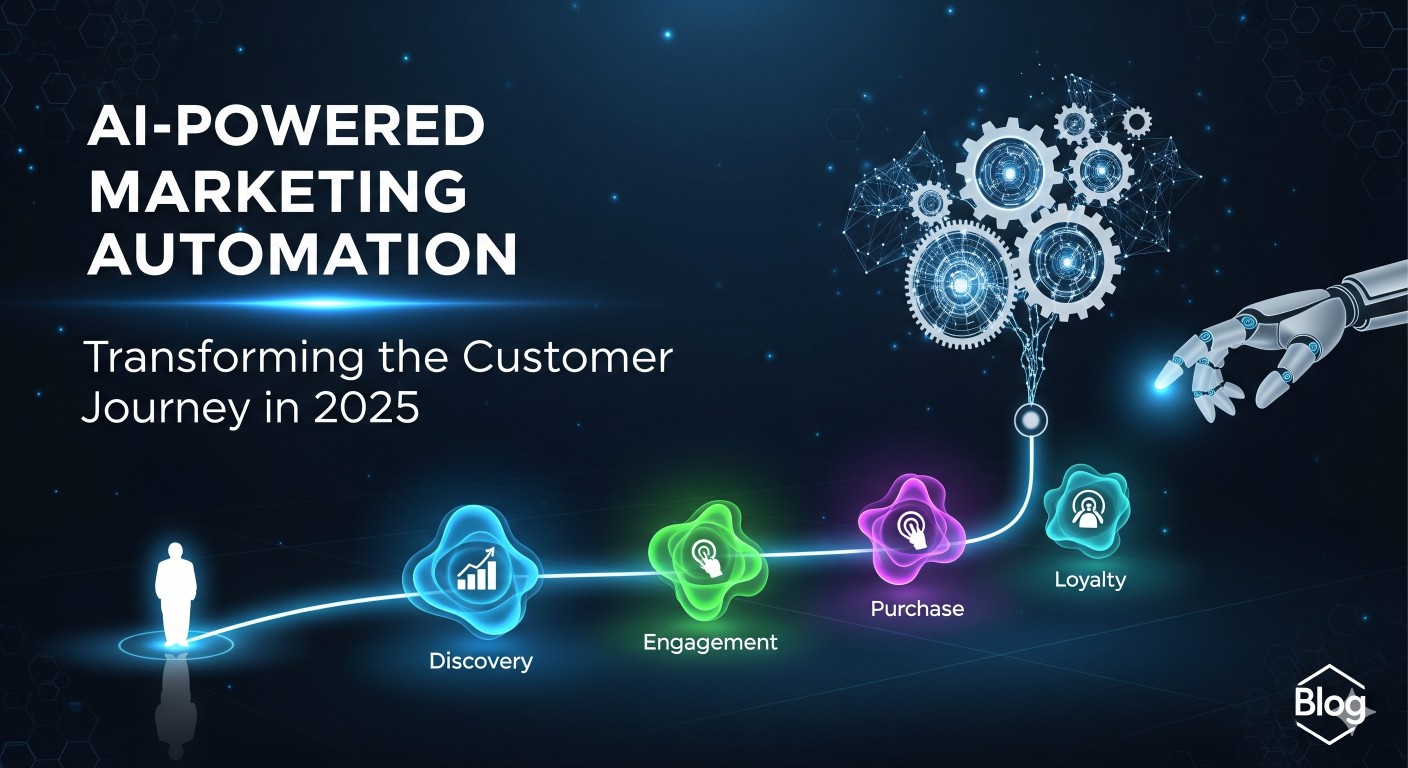In 2025, 75% of consumers now expect personalized experiences from the brands they interact with. Yet most small businesses are still sending the same generic email to everyone on their list. This disconnect between customer expectations and business reality is creating a massive opportunity gap.
AI marketing automation isn't just about saving time (though it does save 20+ hours per week). It's about creating personalized customer journeys that adapt in real-time, nurture leads while you sleep, and increase conversion rates by an average of 40%. In this comprehensive guide, we'll show you exactly how to implement AI marketing automation in your business, even if you're starting from scratch.
Why AI Marketing Automation is Essential in 2025
According to the latest research from Deloitte, marketing leaders are rapidly embracing AI automation, with 70% setting aside dedicated budgets and 56% actively investing. The results across all key metrics are transformative:
Average improvement in conversion rates with AI-powered personalization
Consumers prefer brands that deliver AI-personalized content experiences
Automated systems that work around the clock without human intervention
Typical return on investment for properly implemented AI marketing automation
But AI marketing automation isn't just about improved metrics. It's about transforming customer relationships, creating experiences that feel genuinely personal at scale, and building competitive advantages that are difficult for competitors to replicate.
What is AI-Powered Marketing Automation?
AI-powered marketing automation combines traditional marketing automation workflows with artificial intelligence capabilities to create adaptive, personalized customer experiences at scale.
Key AI Marketing Automation Capabilities:
- Predictive Lead Scoring: AI analyzes behavior patterns to identify your most likely-to-convert prospects
- Dynamic Content Generation: Automatically creates personalized content based on customer preferences and behavior
- Behavioral Triggering: Responds to customer actions in real-time with relevant messages and offers
- Optimal Timing Prediction: Uses machine learning to determine the best time to reach each individual customer
Which AI Marketing Tools Should You Implement First?
Based on 2025 market research and real implementation data, here are the six most impactful AI marketing automation categories, ranked by ROI and implementation priority:
6-Step AI Marketing Automation Implementation Framework
With implementation costs ranging from $15,000-$100,000, SMBs need a systematic approach to maximize ROI. Here's our proven framework used by businesses achieving 300% ROI:
Customer Journey Mapping & Data Audit
1-2 weeksMap your current customer journey, audit existing data quality, and identify key touchpoints where AI can add value.
AI Marketing Strategy & Tool Selection
1 weekDefine your AI marketing goals, select appropriate tools, and create integration roadmap based on your tech stack.
Data Integration & Setup
2-3 weeksConnect data sources, set up tracking, configure AI tools, and establish data flows between systems.
AI Model Training & Personalization Rules
2-4 weeksTrain AI models with your historical data, set up personalization rules, and create automated workflows.
Testing & Optimization Phase
3-4 weeksA/B test AI-generated content, monitor performance, refine algorithms, and optimize conversion paths.
Scale & Advanced Features
OngoingExpand to additional channels, implement advanced AI features, and continuously optimize based on performance data.
5 Critical AI Marketing Automation Mistakes to Avoid
Learning from 2025 implementations, here are the most common mistakes that can derail your AI marketing automation efforts and proven solutions to avoid them:
Implementing AI Without Clean Data
High ImpactSolution: Clean and organize your customer data first. AI is only as good as the data you feed it - garbage in, garbage out.
Over-Personalizing Too Quickly
High ImpactSolution: Start with basic segmentation and gradually increase personalization depth. Too much too fast can feel creepy to customers.
Ignoring Human Oversight
Medium ImpactSolution: Always maintain human review of AI-generated content and decisions. AI can make mistakes that damage brand reputation.
Not Testing AI Recommendations
Medium ImpactSolution: A/B test all AI-powered campaigns against control groups. Don't assume AI is always better than human-created content.
Focusing Only on Acquisition
Low ImpactSolution: Use AI for retention and customer lifetime value optimization, not just new customer acquisition campaigns.
Calculating Your AI Marketing Automation ROI
Before investing in AI marketing automation, you need to understand the potential return. Here's how to calculate it:
ROI Calculation Framework
Real Example: SaaS Company AI Marketing Automation
Before AI Automation:
- • Marketing team: 3 people × $60k = $180k/year
- • Tools and software: $24k/year
- • Ad spend effectiveness: 2.1% conversion rate
- • Manual lead nurturing: 30 hours/week
After AI Implementation:
- • AI tools cost: $36k/year
- • Conversion rate improvement: 2.9% (+40%)
- • Time saved: 25 hours/week
- • ROI: 312% in first year
When SMBs Should Get Professional Help
With 70% of marketing leaders now investing in AI automation in 2025, professional guidance ensures SMBs avoid common pitfalls and achieve optimal results. Consider expert help when:
Ready to Transform Your Marketing with AI Automation?
Don't let your competitors get ahead with AI-powered personalization. Get a free marketing automation assessment and discover your highest-impact opportunities for 40% conversion increases.
Your AI Marketing Automation Action Plan
1. Start with Data Audit
Assess your current data quality and identify integration opportunities.
2. Choose Your First Use Case
Pick a high-impact, low-complexity automation to build momentum.
3. Measure and Scale
Track performance metrics and expand to additional channels and use cases.

